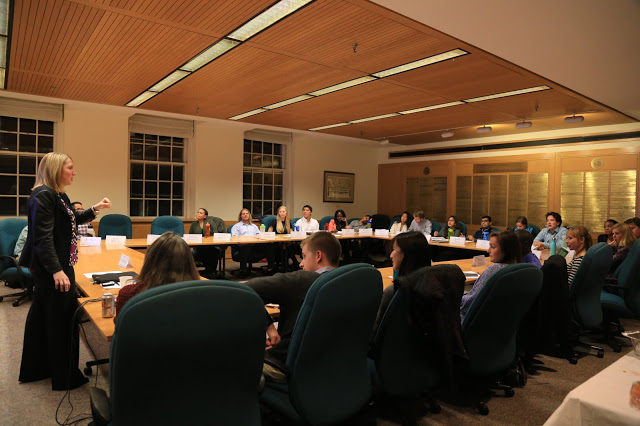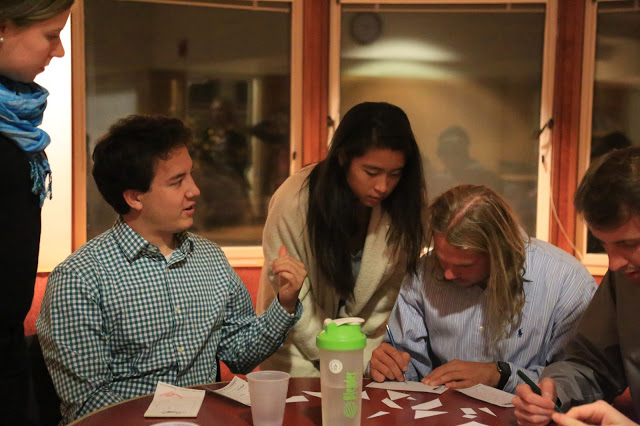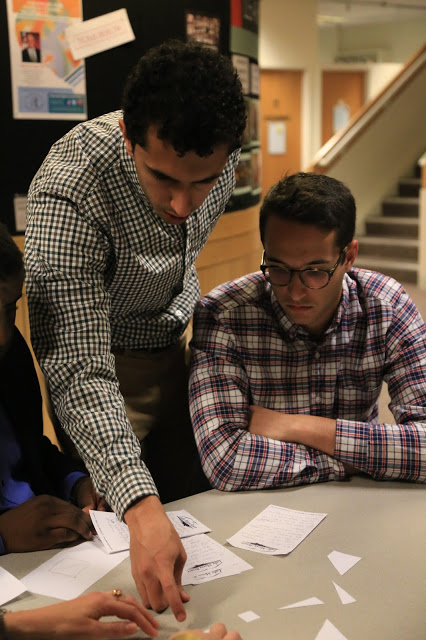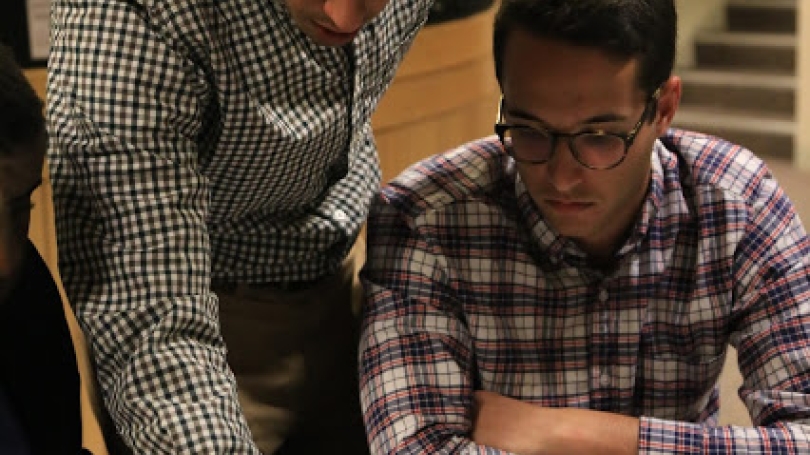The Rockefeller Leadership Fellows recently had the chance to learn from Alison Fragale ’97 about effective delegation and empowerment in leadership. After graduating from Dartmouth, Dr. Fragale went on to work at McKinsey & Company for two years before pursuing her Ph.D. in Organizational Behavior at Stanford University’s Graduate School of Business. She is now a professor of Organizational Behavior and Strategy at the University of North Carolina’s Kenan-Flagler Business School. Dr. Fragale teaches courses on leadership and management to undergraduates, MBAs and executives, and she researches the consequences and formation of interpersonal hierarchies in groups and organizations. Dr. Fragale also currently serves on the Board of Visitors of the Nelson A. Rockefeller Center for Public Policy and the Social Sciences at Dartmouth College.
 |
| Alison Fragile '97 discusses effective delegation and empowerment in leadership with the Rockefeller Leadership Fellows. Photo by May Nguyen '18. |
Dr. Fragale started the session with an activity where fellows were divided into teams, and each team had a group of “managers” and a group of “producers.” The managers and producers were taken into separate rooms and each given a set of instructions about a “product” that they were going to create. For the first 20 minutes of the activity, managers and producers could only correspond through messages passed by the facilitators. Then, for the final 5 minutes, managers could meet with their producers and further communicate the goals of the product to them. After that final period of communication, producers were required to create this product (an accurately assembled tangram the managers had described) as quickly as possible. Some teams completed this task very quickly, whereas others had more trouble getting the design right.
 |
| Spencer Chu '16 (far left) participates in a delegation activity with his group. Photo by May Nguyen '18. |
Once we had finished this activity, we discussed its implications. We quickly realized that there were a number of key factors that led a group to success. The first of these was communication; teams that had communicated earlier seemed to do better than those who had only communicated later in the process. Second, groups who utilized all of their producer resources simultaneously were more effective. We realized from this activity that the goals and access to information of different levels of an organization have a huge impact on its ability to function. Furthermore, the ability of managers and producers to communicate to each other what they do or do not know is critical to the success of a project.
 |
| The Leadership Fellows try to assemble the tangram as the managers team had described. Photo by May Nguyen '18. |
After considering the implications of our activity, Dr. Fragale went on to discuss different strategies of delegation and when one should delegate. One particularly interesting question she posed to the group was: “What are you better than anyone else at in your organization?” Anything that did not fall under that description is a candidate for delegation. This seemingly simple question can be a powerful tool to determine whether or not you, as a leader, are effectively delegating. Dr. Fragale gave us a lot to think about in terms of how and when to delegate and how to enable those we delegate to. I know that the fellows will continue to reflect on and develop these skills as we evolve as leaders.
-Written by Spencer Chu '16, Rockefeller Leadership Fellow
This ongoing series explores sessions of the Rockefeller Leadership Fellows (RLF) program. RLF provides fellows with resources in leadership theories and practical skills. Selected their Junior Spring, these Seniors take part in the workshops, dinner discussions, and team-building exercises as they gain a better understanding of the qualities and responsibilities necessary for leaders and successful leadership styles.



